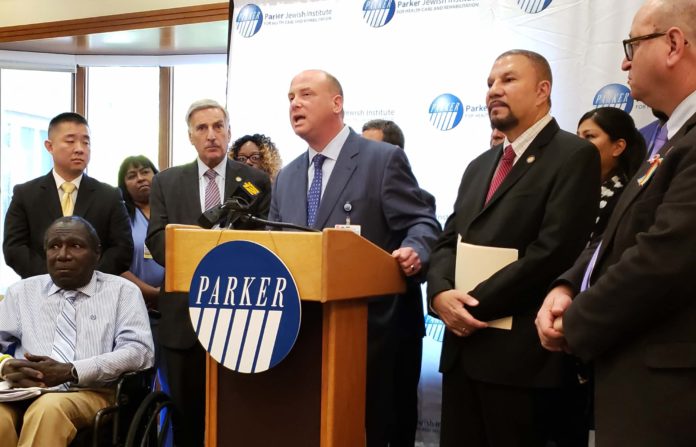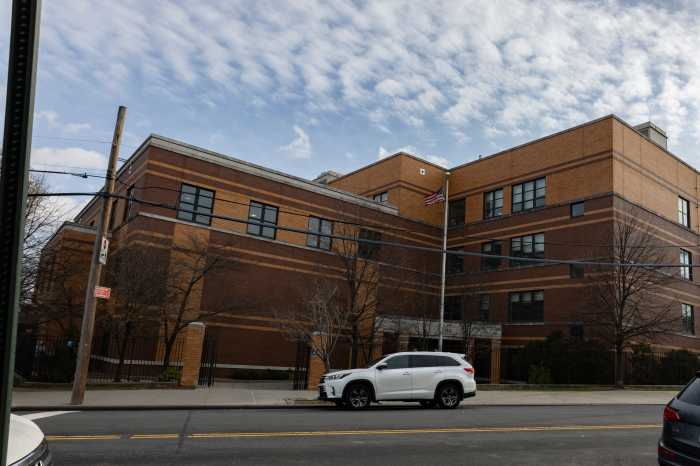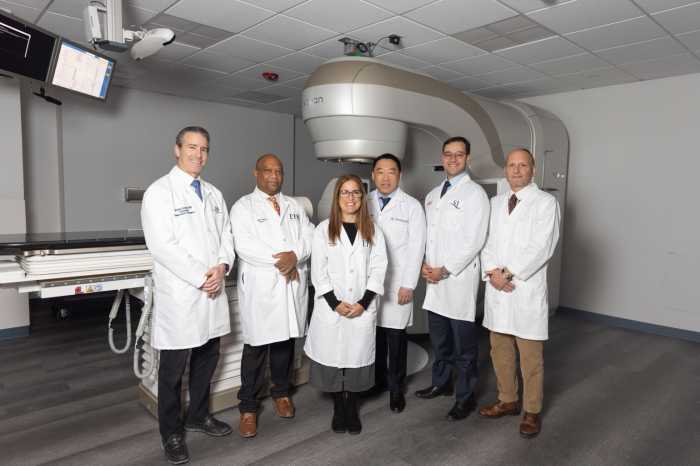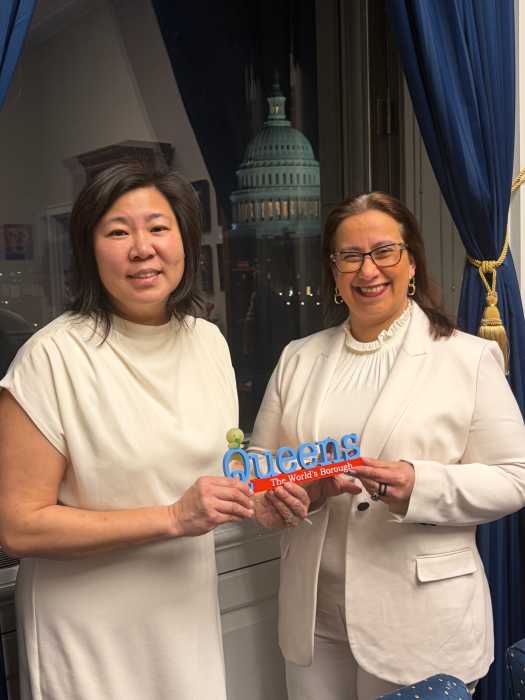An anticipated $250 million cut in Medicaid assistance that the New York State Department of Health provides to nursing homes statewide may seriously deteriorate the care provided to vulnerable residents, officials say.
Healthcare advocates, nursing home industry leaders, and lawmakers are sounding the alarm that the cuts could lead to mass layoffs of healthcare workers, a decline in quality of life and care for residents, and put some financially troubled nursing homes in danger of closing.
“Nursing homes, residents, and their staff are under attack,” Luis Valenzuela, an advocate with the Long Island Healthcare Education Project, told reporters during a news conference Thursday at Parker Jewish Institute for Health Care and Rehabilitation in New Hyde Park. “We do a disservice to folks who should be valued and invested in for our communities and thanking them for the work that they’ve done. What we say is stop these cuts and consider the stakeholders recommendations and move forward from there.”
The cuts, which are expected to go into effect on Nov. 6 — and include retroactive cuts through July 1 — will affect more than 600 nursing homes in the state. The cash crunch comes as The Empire State, which spends a third of its budget on Medicaid — more than $60 billion annually, second only to California — tries to stem Medicaid spending overruns. The nursing home funding issue hinges on the state recently changing how it calculates what’s known as the case-mix index (CMI) to reimburse such facilities.
“The department does not expect this change to result in any disruption to nursing home residents and the care they receive,” the agency said in a statement.
But critics say a state health department task force erred when it recommended the change and the department needs to restore the cuts.
“The task force had no representation from the nursing home community and they’re on the front lines providing healthcare and service to all of our constituents,” said State Assemblyman David Weprin (D-Queens). “We’re asking the commissioner to reopen the task force to make these restorations.”
Jacquelle Pinnock, a healthcare worker who has been with the Parker Jewish Institute for almost seven years, said nursing homes need more funding, not less.
“We need to continue to meet quality long-term care options,” she said. “Instead of cutting payments and services for this population, we should be making investments necessary to meet their needs today and into the future.”
With a week before these cuts are slated to go into effect, nursing home care providers said they will continue to lobby the state to reverse its decision.
“We will not tolerate this and we will be proud on behalf of our team for the care we deliver only for one reason,” said Parker Jewish Institute President and CEO Michael Rosenblut. “Because we have an awesome team of care members upstairs right now taking care of the residents.”




































